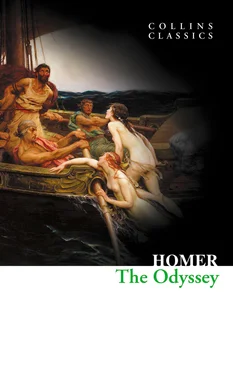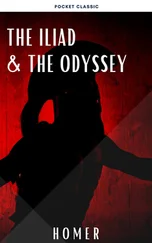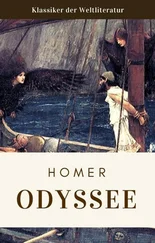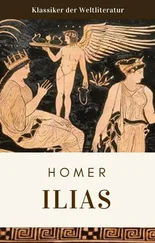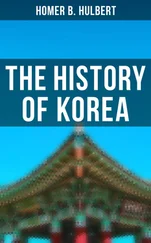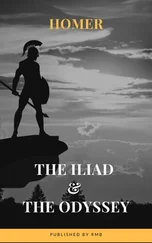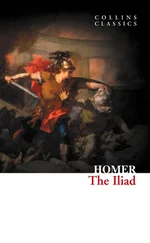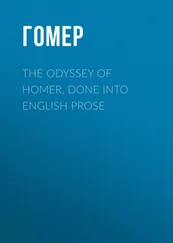1 ...8 9 10 12 13 14 ...23 The dark blood gushed forth, and life left its bones. Very quickly they disjointed the carcase, stripped the flesh from the thigh bones, doubled them in the customary manner with a wrapping of the fatty parts, above and below, and banked the raw meat over them. Then the elder set fire to his cleft billets of wood and burned the offering while sprinkling ruddy wine upon the flames. So the thigh bones were utterly consumed even as the young men tasted the entrailmeat, crowding about their father with the five-pronged roasting forks in their hands. Afterwards they chopped up the rest of the flesh into morsels which they impaled on their points and broiled, holding the sharp spits firmly out to the fire.
During this sacrifice beautiful Polycaste, the youngest grown daughter of Nestor son of Neleus, had given Telemachus his bath, washing him and anointing him with rich olive oil before she draped him in a seemly tunic and cloak: so that he came forth from the bath-cabinet with the body of an immortal. He rejoined Nestor, the shepherd of his people, and took place by his side. The flesh-meat was now ready. They drew it off the fork-points and sat down to dine. Men of standing waited on them, filling up with wine their golden beakers: and when they had eaten and drunken till they would no more, Nestor, Gerenia’s knight, again opened his mouth and said:
‘Now, my sons, it is time to harness to Telemachus’ chariot the long-maned, proud-tailed horses, that he may be upon his way.’ So he spoke, and heedfully they hastened to do his bidding. Very soon the swift horses were ready beneath the chariot’s yoke. The house-keeper packed in bread and wine which she brought from her stores, together with such dainties as kings, the spoiled darlings of the gods, are wont to eat.
Telemachus stepped up into the stately chariot. Peisistratus, Nestor’s noble son, stepped up beside him and gathered the reins into his hands. Then he struck the horses with the whip: and these, glad to be loosed, flew down from the steep crag of the citadel of Pylos out on to the plain: which all day long they steadily traversed, with the yoke nodding to and fro over their necks.
Down sank the sun. The road became blind. They were in Therae, by the house of Diocles, son to Ortilochus, who was own son of Alpheus. With him they rested the night, duly entertained: and at the first red pointers of dawn in the sky they were yoking their horses to the gay chariot for their next stage.
Forth they drove through the court-yard gate past the echoing porch. Again the driver swung his whip: again the willing horses flew forward. Presently they entered the wheat-lands, sign that their journey drew towards its close; with such speed had the horses pressed on. Again the sun grew low and the roads were darkened.
BOOK 4 CONTENTS COVER TITLE PAGE THE ODYSSEY Homer BOOK 1 BOOK 2 BOOK 3 BOOK 4 BOOK 5 BOOK 6 BOOK 7 BOOK 8 BOOK 9 BOOK 10 BOOK 11 BOOK 12 BOOK 13 BOOK 14 BOOK 15 BOOK 16 BOOK 17 BOOK 18 BOOK 19 BOOK 20 BOOK 21 BOOK 22 BOOK 23 BOOK 24 CLASSIC LITERATURE: WORDS AND PHRASES ADAPTED FROM THE COLLINS ENGLISH DICTIONARY ABOUT THE AUTHOR OTHER WORKS TRANSLATOR’S NOTE HISTORY OF COLLINS COPYRIGHT ABOUT THE PUBLISHER
They came to the country of Lacedaemon, where it nestled among the hollowed hills: and they drove up to the home of famous Menelaus. He was in act of feasting his many kinsmen to celebrate the marriages of his son and of the flawless daughter of his house. The girl he was giving to the son of that breaker of the line of battle, Achilles. It was in Troy that Menelaus first accepted the proposal and bowed his head in agreement that his daughter should go; and now by horses and car he was about to send her to the storied city of the Myrmidons over which her bridegroom was king: for the Gods were causing the fulfilment of the match proposed. As for the son – Menelaus was bringing from the town of Sparta the daughter of Alector to wed his Megapenthes, his strong but only son whom he had got by a slave-woman: for to Helen the Gods vouchsafed no more fertility after she had borne her first adorable child Hermione, who was as fair as golden Aphrodite herself. So they were dining delightedly, these neighbours and kinsmen of the famous Menelaus, under his tall roof-tree. Of the party one was a minstrel who sang divinely to his lyre. As soon as his preluding chords were heard two clowns danced in among the guests and threw cartwheels upon the hall floor.
Just then in the clear space before the house there reined up the chariot and pair of heroic Telemachus and Nestor’s distinguished son. Master Etoneus the lively squire of famed Menelaus happened to see them come. He ran through the palace to bear news of them to the Shepherd of the People. Going up close to him he said pointedly, ‘Two men are arriving, my lord Menelaus, nursling of Zeus: strangers, but godlike in look as though they were of Zeus’ own kin. Tell me quickly, shall we now unharness their swift horses? Or send them on to some proper man for entertainment?’
Ruddy Menelaus flushed in wrath and cried to him, ‘You were not anciently such a fool, O Etoneus, son of Boethus! But herein you babble like a fond child, forgetting how many times we two have eaten hospitably in other men’s houses on our way back to this palace, where may Zeus for ever grant us surcease from pain! Hasten to take the horses from the chariot of our guests and bring the two riders in to feast with us.’ At his order the squire darted back through the hall bidding the other brisk footboys help him. They loosed the sweating horses from the yoke and haltered them in the horse-stalls, throwing down for them a mixed feed of corn and white barley. They propped the chariot against the polished return of the gateway and led the men into the marvellous house.
Upon first sight of this palace of the heaven-nurtured king the visitors paused in amaze. The lustre that played through it was as though the sun or the moon had risen within the lofty dwelling of far-famed Menelaus. They stared round, feasting their eyes: then went to the polished bathtubs and bathed: or rather, the house-maidens bathed them and rubbed them down with oil, and after swathed them in warm mantles over tunics; fitting them to take place on their thrones beside Menelaus the son of Atreus.
The washing ewer, a goodly golden ewer, was brought to them by its maid-servant who poured water over their fingers into the silver cistern. She arranged a shining table by their side upon which the aged housekeeper put bread and rich victuals in joyful profusion. The butler came with platters of various flesh-meats and placed golden goblets to their hands. Menelaus waved them to his bounty saying, ‘Taste of our food and be glad: so that after you have eaten we may enquire of you who you are. In scions like you the fathers’ stock has not gone to waste: patently you are of the breed of kings, sceptered god-children of Zeus. The mean people do not sire sons like you.’ With this introduction he picked up and passed to them the luscious loin of beef which had come to him as his privileged portion: then their hands duly made free with the refreshments provided.
Later, when their longings for food or drink had been put away Telemachus leaned his head across near the son of Nestor and whispered in his ear, that the others might not catch his words, ‘Son of Nestor and joy of my heart, see what a blaze of polished copper and gold and electrum and silver and ivory goes through this echoing hall. Surely the mansions of Olympian Zeus must be like this, one great glory within of things wonderful beyond all telling. I am awed by the very sight of it.’
Fair-haired Menelaus had overheard his whisper. He opened his mouth to them with momentous words. ‘Dear children, with Zeus no mortal man can vie. His houses and his treasures are from everlasting to everlasting. On earth – well, there may be a man as rich as myself, or there may not: but it was only after terrible suffering and eight years of adventure in foreign parts that I won home from overseas with this my wealth. I wandered through Cyprus and Phoenicia and Egypt: I have seen Ethiopians and Sidonians and the Erembi in their native haunts: even Libya, where the ewes bring forth their lambs with horns on and bear them three several times in the cycle of each year. No Libyan, be he king or shepherd, goes short of cheese or mutton or sweet ewe-milk, for the udders are full there all the year round.
Читать дальше
